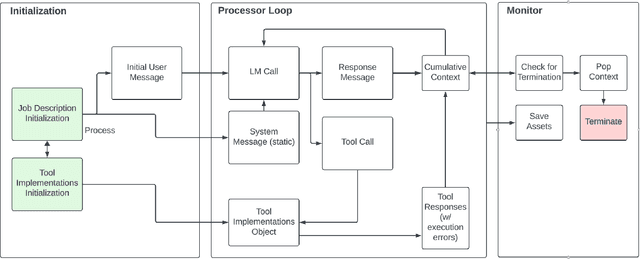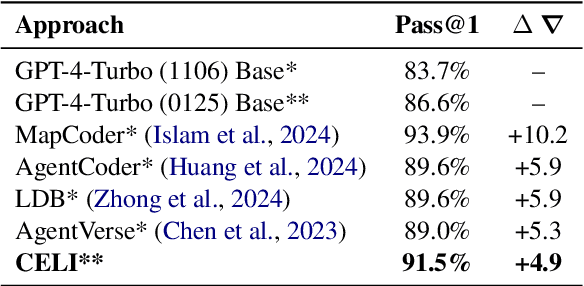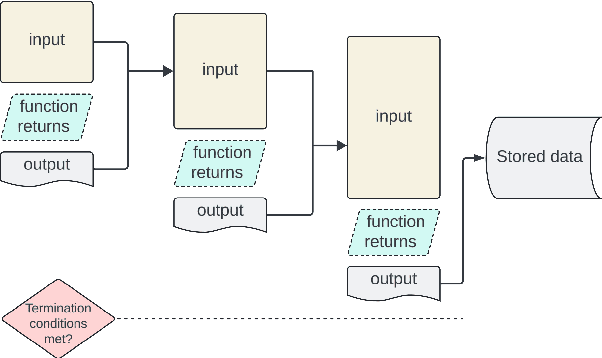Dave DeCaprio
FSA, MPH
CELI: Controller-Embedded Language Model Interactions
Oct 18, 2024



Abstract:We introduce Controller-Embedded Language Model Interactions (CELI), a framework that integrates control logic directly within language model (LM) prompts, facilitating complex, multi-stage task execution. CELI addresses limitations of existing prompt engineering and workflow optimization techniques by embedding control logic directly within the operational context of language models, enabling dynamic adaptation to evolving task requirements. Our framework transfers control from the traditional programming execution environment to the LMs, allowing them to autonomously manage computational workflows while maintaining seamless interaction with external systems and functions. CELI supports arbitrary function calls with variable arguments, bridging the gap between LMs' adaptive reasoning capabilities and conventional software paradigms' structured control mechanisms. To evaluate CELI's versatility and effectiveness, we conducted case studies in two distinct domains: code generation (HumanEval benchmark) and multi-stage content generation (Wikipedia-style articles). The results demonstrate notable performance improvements across a range of domains. CELI achieved a 4.9 percentage point improvement over the best reported score of the baseline GPT-4 model on the HumanEval code generation benchmark. In multi-stage content generation, 94.4% of CELI-produced Wikipedia-style articles met or exceeded first draft quality when optimally configured, with 44.4% achieving high quality. These outcomes underscore CELI's potential for optimizing AI-driven workflows across diverse computational domains.
Building a COVID-19 Vulnerability Index
Mar 23, 2020


Abstract:COVID-19 is an acute respiratory disease that has been classified as a pandemic by the World Health Organization. Information regarding this particular disease is limited, however, it is known to have high mortality rates, particularly among individuals with preexisting medical conditions. Creating models to identify individuals who are at the greatest risk for severe complications due to COVID-19 will be useful to help for outreach campaigns in mitigating the diseases worst effects. While information specific to COVID-19 is limited, a model using complications due to other upper respiratory infections can be used as a proxy to help identify those individuals who are at the greatest risk. We present the results for three models predicting such complications, with each model having varying levels of predictive effectiveness at the expense of ease of implementation.
 Add to Chrome
Add to Chrome Add to Firefox
Add to Firefox Add to Edge
Add to Edge